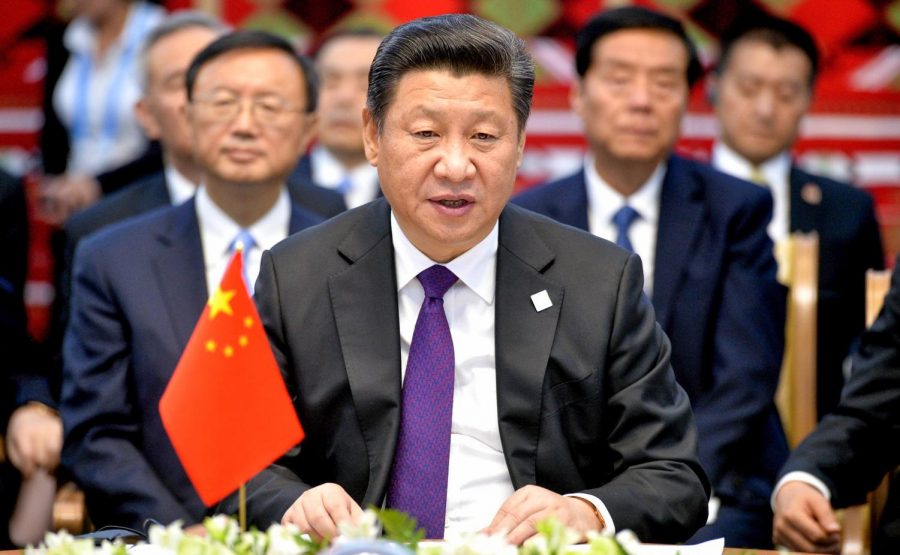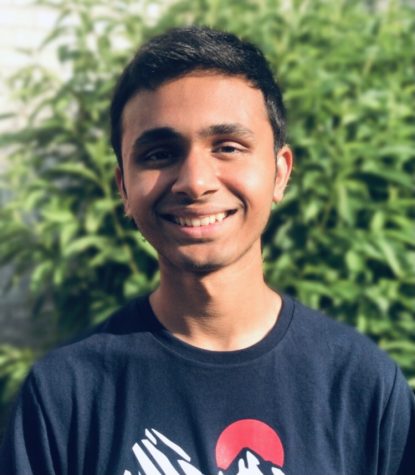An economic superpower to a military one: China’s rising geopolitical dominance
February 17, 2021
On Dec. 3, 2020, The Wall Street Journal published an article by United States Director of National Intelligence John Ratcliffe in which he accuses the Chinese government of having conducted human testing on members of the People’s Liberation Army in pursuit of developing soldiers with “biologically enhanced capabilities.” Ratcliffe’s claim is presumably supported by classified US intelligence that uncovered the rising Eastern superpower’s classified weapons program, and independent researchers confirmed that China could potentially be using the gene-editing tool CRISPR to enhance the performance of their troops. This may surprise many people, but this intelligence report merely confirms the suspicions of many observers of the post-communist economic superpower: China is planning to expand its military influence in the world.
When examining Chinese domestic policy since the initial liberalization of its economy in the late 1970s and early 1980s, such an expansion in military power was almost expected. After the horrors of a famine that left more than 50 million Chinese citizens starving, Chairman Mao Zedong’s successors directed their efforts on reclaiming the spot of a global economic superpower. This first “phase” of post-communist Chinese policy is evidently successful, but the Chinese republic still ranks third in overall power, according to Business Insider. Now, it’s attempting to change that, and the Western world needs to be ready to respond and contain the power of the authoritarian and genocidal state.
In recent years, China has been the perpetrator of numerous controversies within its borders, most notably the Uyghur genocide. Following some incidents of Islamic separatism and riots in the northwest region of Xinjiang in the mid-2010s, the Chinese Communist Party (CCP) set up “education camps” in order to round up hundreds of thousands of ethnic Uyghur Muslims – among other groups – to “curb extremism.” The United Nations has confirmed that the camps are for the purpose of re-education, with numerous allegations of human rights abuses.
“The genocide that the CCP has enacted on them is an absolute disgrace towards them as a people and humanity itself,” senior Miles Roper said. “They [Uyghurs] have been expelled into unsanitary labor camps and women have been sterilized so the government can pursue a religious and ethnic cleansing to funnel all psychological commitments to the CCP. Their people are being erased right in front of our eyes and the government is actively hiding it.”
Around the same time, China expanded its authoritarianism beyond its borders, intervening in the ongoing Hong Kong protests by undermining their autonomy through the proposal of an overreaching extradition bill. In the CCP’s perpetual attempts towards undermining the sovereignty of the Hong Kong people, it has been proven that it is not a promoter of democracy but rather a malevolent force. China has also set its eyes on developing nations in Africa in order to expand its influence beyond southeast Asia. Known as the Belt and Road Initiative, this global infrastructure initiative is designed to invest in nearly 70 nations worldwide — the majority of which are in Africa — in order to expand Chinese economic trade. But despite being branded as a benevolent global project, it encompasses a darker motive.
“They’re exporting surveillance technology and an authoritarian model of government to African countries,” senior Seun Adekunle said. “There is a lack of transparency on [China’s] deals with African nations which might be a future concern. It can also be seen as neocolonial attempts.”
It’s important to note that China has long been seen as a national security threat by the United States, with the two countries being in a state of tentative peace dating back to the days of the Cold War. Both the United States and China have long balanced each other’s power, but both sides are well aware of the threat they pose to their rival’s ideals.
In the past several months, there has been concern by the United States federal government over common apps used by Americans. Well-known apps such as TikTok are owned by companies based in Beijing. Leaked documents have shown that the social media platform has had content that exposes the misdoings of the CCP deleted. Criticism against the government is commonplace in the United States, but it is a different story in China and is now spreading to the former through social media in order to prevent negative perceptions of the Chinese regime. In August 2020, former President Donald Trump signed an executive order to eliminate TikTok’s ties to Beijing, and while it was successful — US operation of TikTok was sold to Oracle — it only marks the beginning of a set of defiant pieces of legislation and action by the US government to counter Chinese aggression.
So far, the United Nations has done poorly at properly condemning China for its suppression of human rights over the years and imposing consequences on them. Many believe that China has an underestimated level of influence over the UN, as it is one of the five nations that have veto power and has many African nations on its side.
“The international community needs to form a unified effort to economically isolate China in response to China’s violations of human rights,” senior Ethan Berkman said. “Without participation from the global community, the US has proven unsuccessful in slowing Chinese economic growth through sanctions”.
If the international community remains silent, China will continue to expand its power and negatively impact those that they hold influence over.



